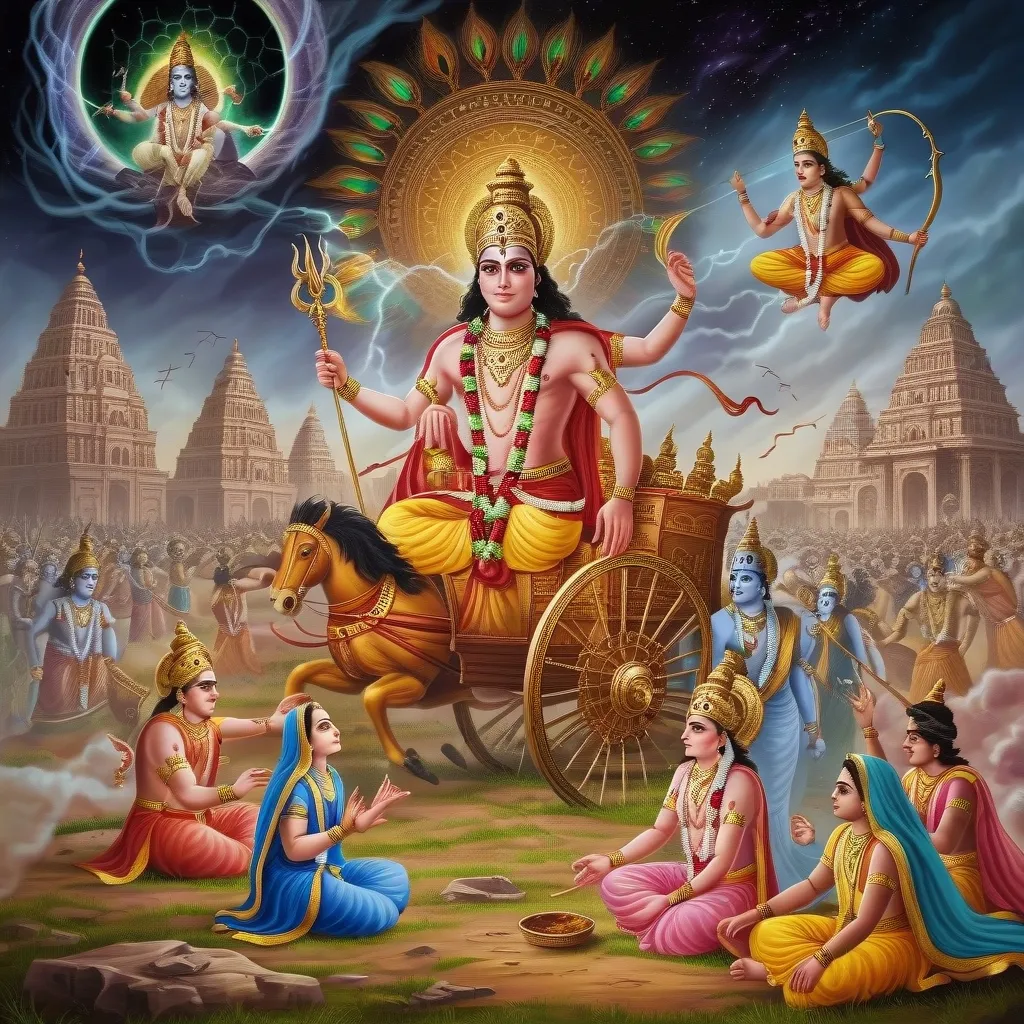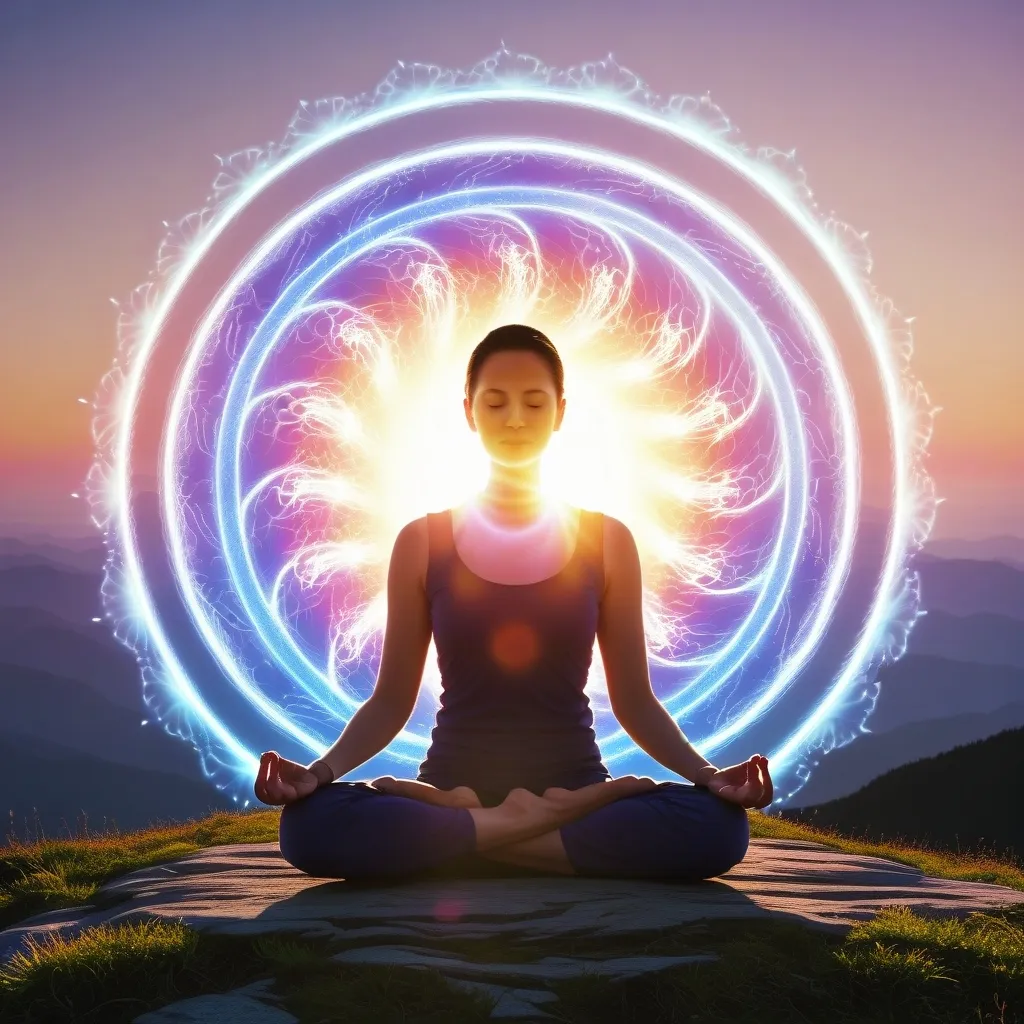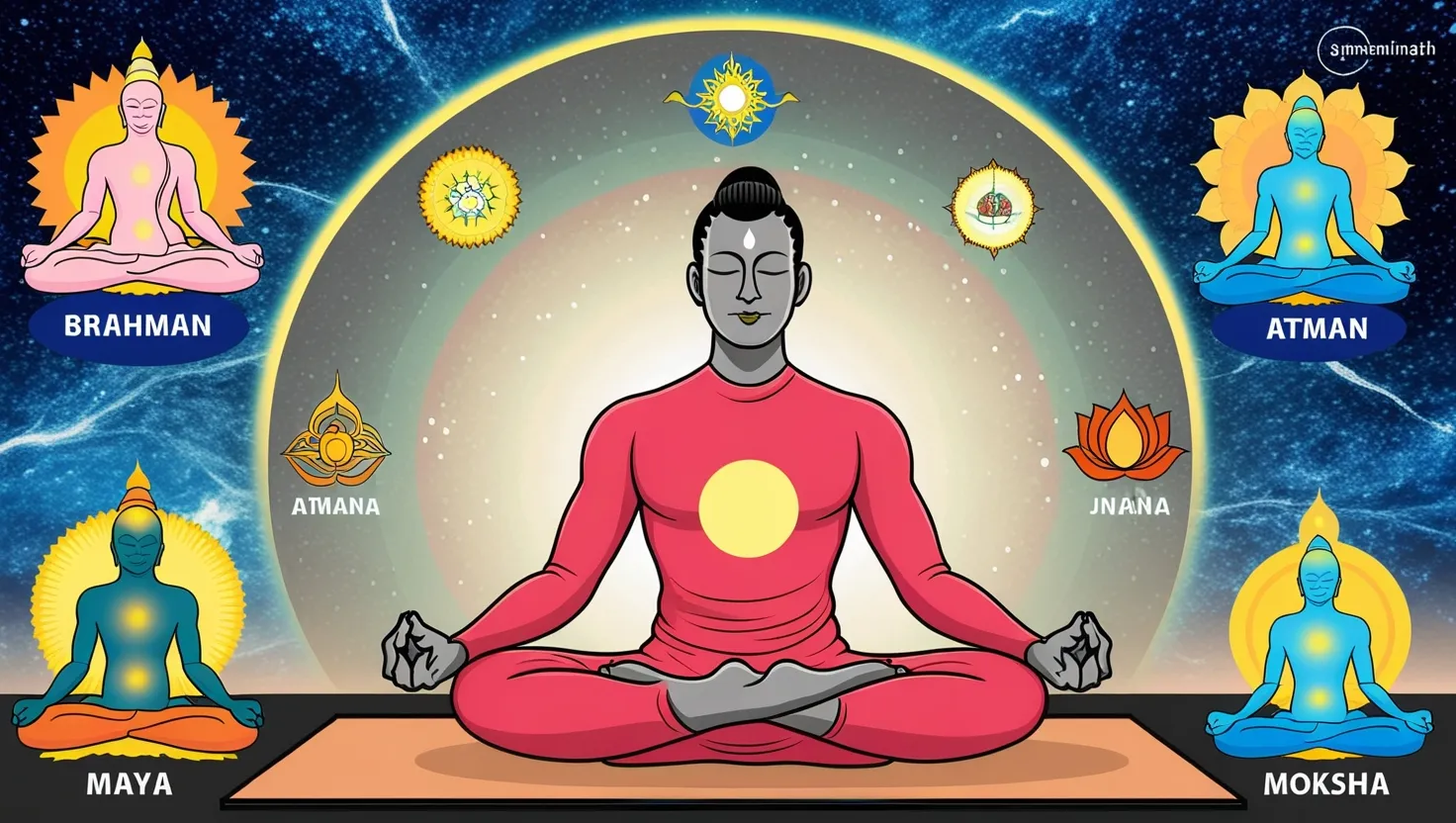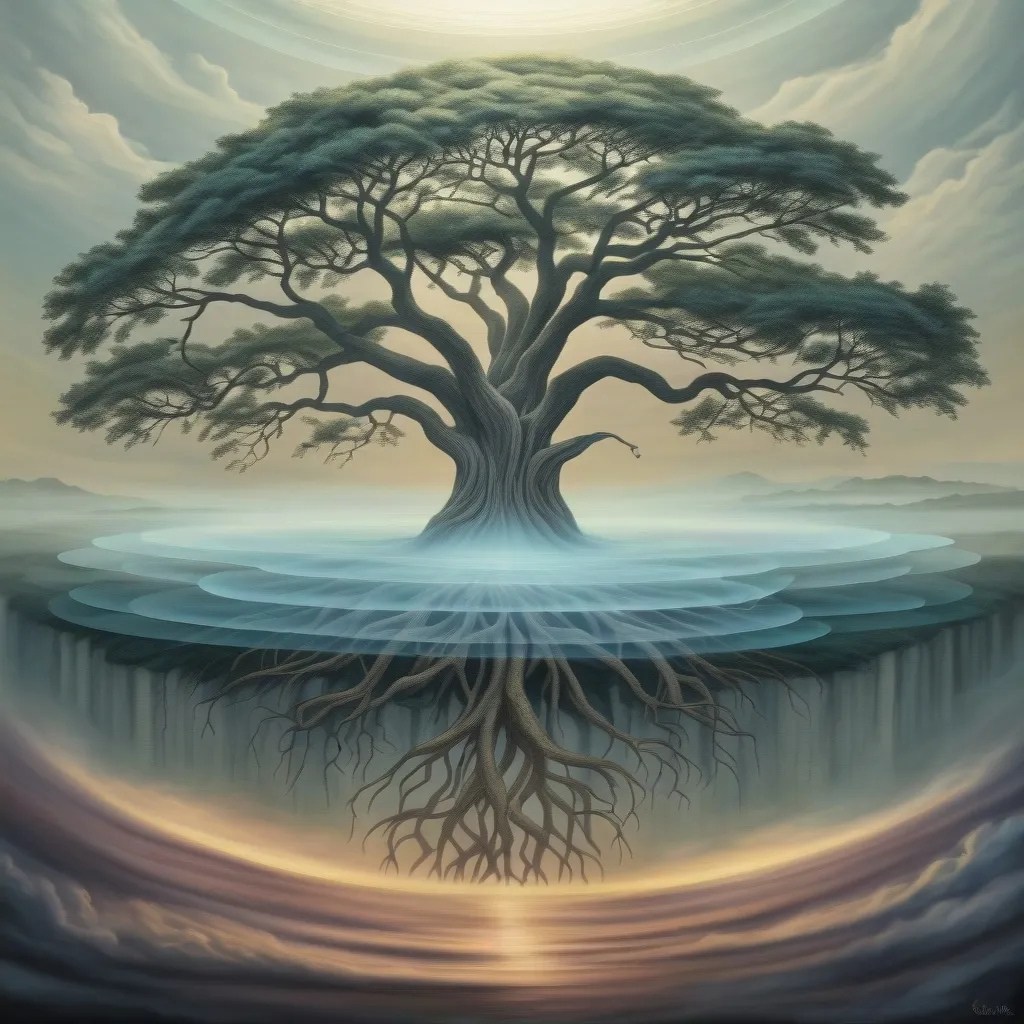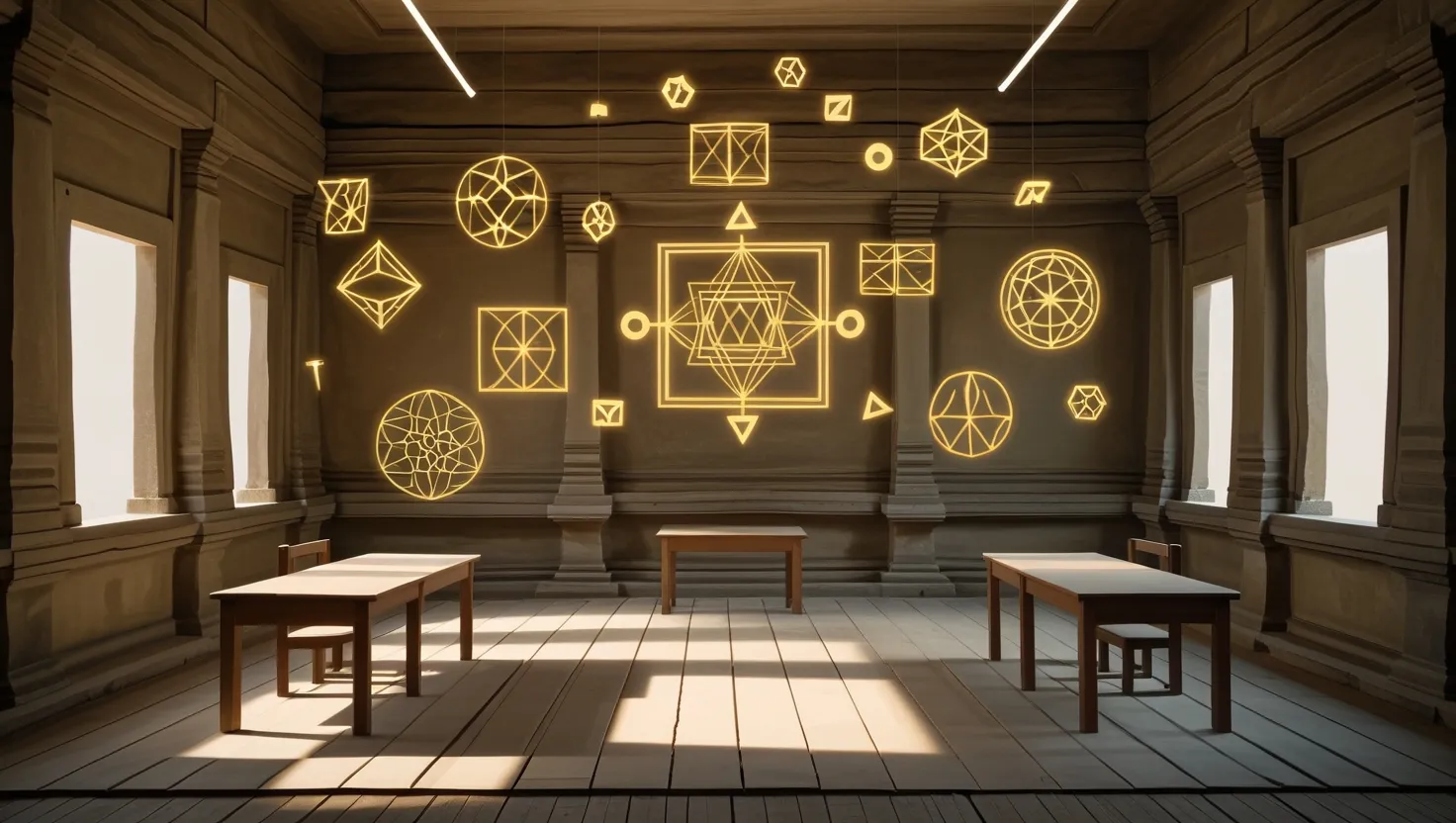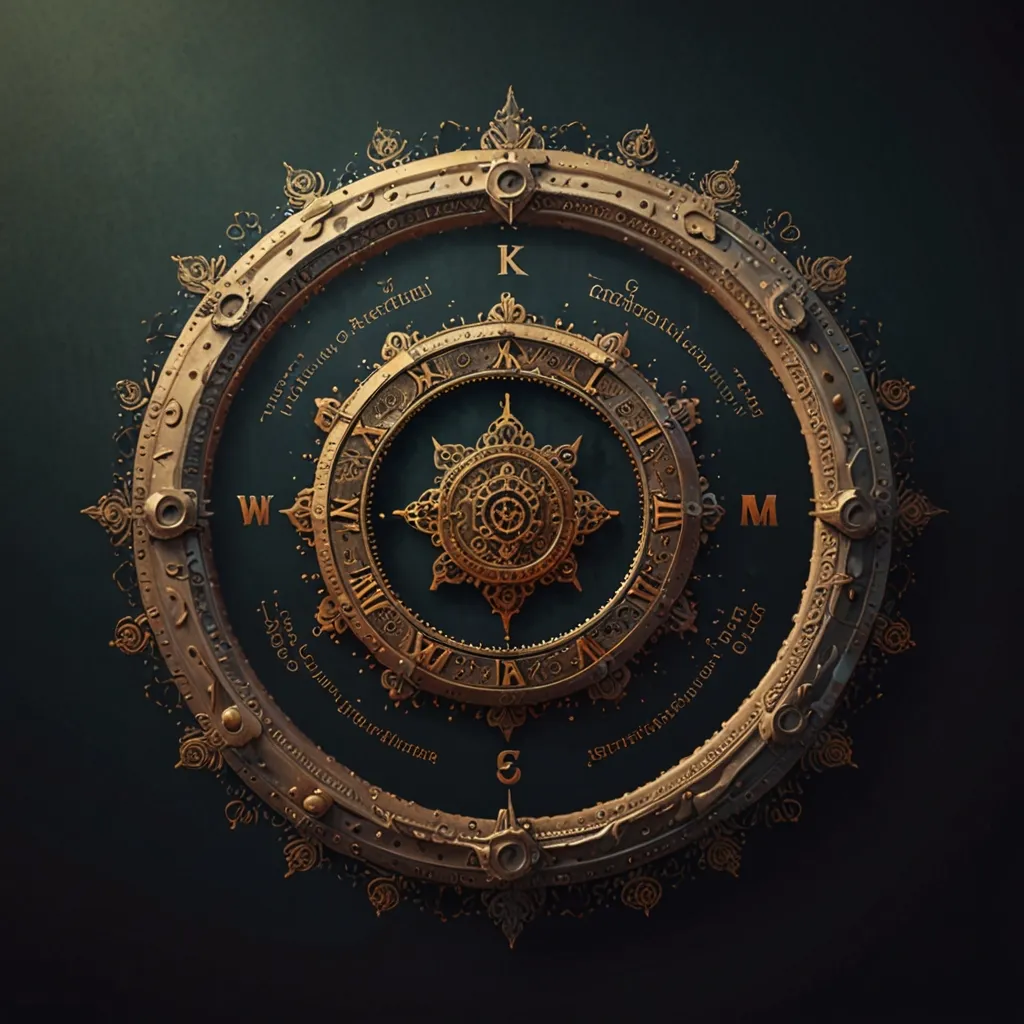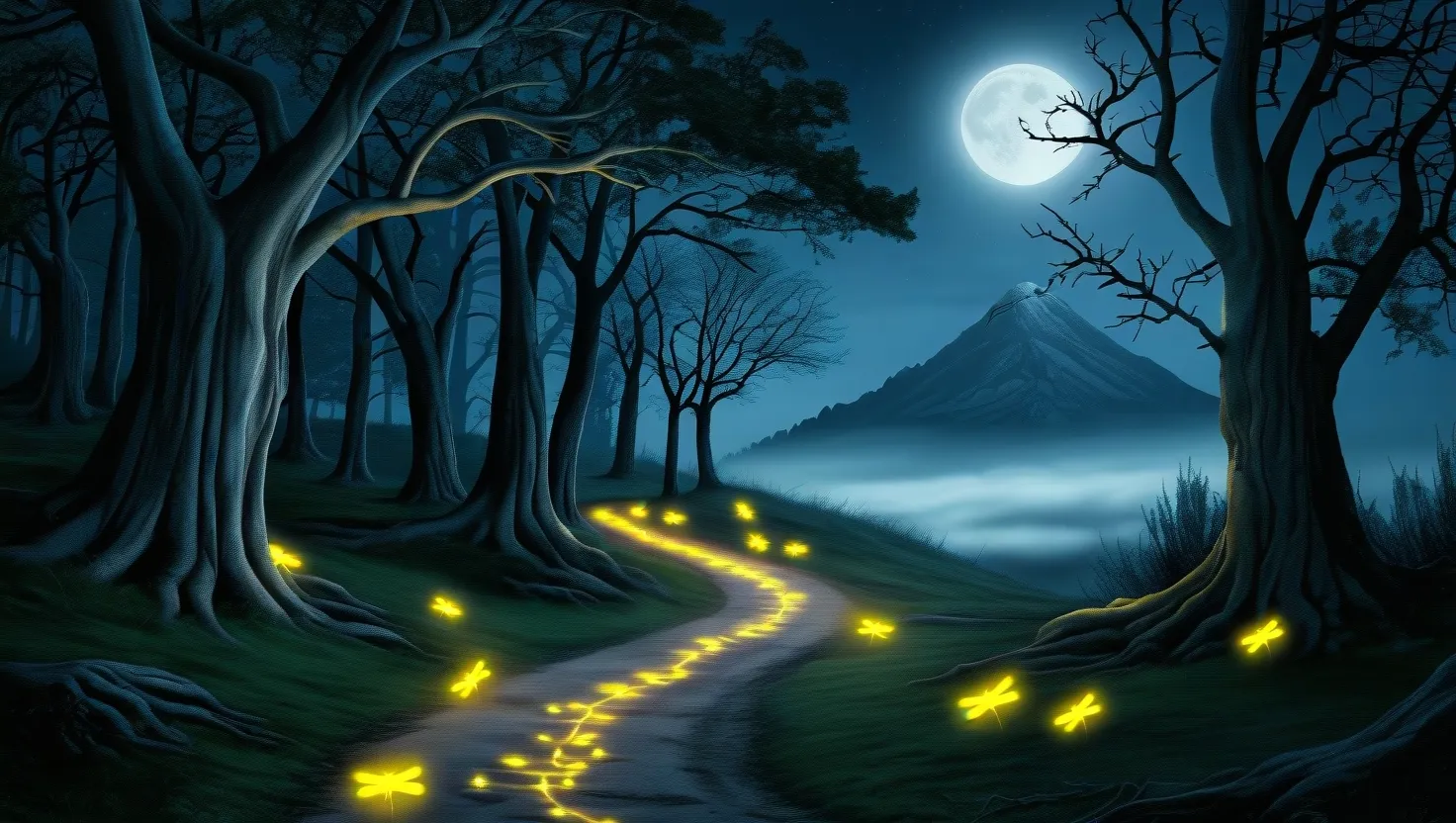The Mahabharata: A Timeless Epic of Human Nature
Hey there, fellow story lovers! Ever heard of the Mahabharata? It’s this massive epic from ancient India that’s been blowing minds for centuries. Trust me, it’s not just some dusty old tale – it’s packed with drama, action, and life lessons that’ll make you go “Whoa!” Let’s dive into this crazy world and see what it’s all about.
So, picture this: two groups of cousins, the Pandavas and the Kauravas, are fighting over who gets to rule a kingdom called Hastinapura. Sounds like a family squabble, right? Well, this isn’t your average family reunion gone wrong. We’re talking about a war that drags in pretty much everyone and their dog.
The Pandavas are these five brothers who are basically the good guys. They’re not perfect, but they try to do the right thing. On the other side, you’ve got the Kauravas – a hundred brothers (yeah, you read that right) who are… let’s just say they’re not winning any “Cousin of the Year” awards.
Now, here’s where it gets wild. This family feud turns into a massive war that lasts for 18 days. It’s like the longest, bloodiest game of capture the flag ever. And get this – by the end of it, almost 80% of all the men fighting are dead. Talk about a family reunion gone horribly wrong!
But here’s the thing – the Mahabharata isn’t just about who wins the throne. It’s like this giant mirror that shows us all the crazy, messy, beautiful parts of being human. It’s got everything – love, hate, jealousy, loyalty, you name it.
Let’s talk about some of the cool stuff hidden in this story. The Pandavas? They’re not just characters – they represent our five senses. And those hundred Kaurava brothers? They’re like all the vices and bad habits we fight against every day. It’s like the epic is saying, “Hey, your real battle isn’t out there – it’s inside you!”
And then there’s Krishna. This guy is like the ultimate life coach. He’s always there, giving advice and helping out. In the story, he drives a chariot for one of the Pandavas, but really, he’s like that voice in your head telling you what’s right and wrong.
One of the coolest parts of the Mahabharata is this little section called the Bhagavad Gita. It’s basically Krishna dropping some serious wisdom on Arjuna (one of the Pandavas) right before the big battle. He’s talking about duty, life, the universe – you know, just light conversation before you go to war with your family.
But it’s not all philosophical stuff. The Mahabharata has some characters that’ll break your heart. Take Karna, for example. This guy’s story is like a Greek tragedy wrapped in an Indian epic. He’s actually the secret brother of the Pandavas, but he ends up fighting against them. It’s like he’s stuck between what he wants and what he thinks is right. Sound familiar? Yeah, we’ve all been there.
And let’s not forget about the older folks in this story. You’ve got characters like Bhishma and Drona who are supposed to be these wise, respected elders. But they end up on the wrong side of the war. It’s like when you grow up and realize your parents or teachers aren’t always right. Talk about an awkward family dinner conversation!
Now, some people argue about whether the Mahabharata actually happened or if it’s just a really elaborate story. Historians are still duking it out over this. Some say it might be based on a real battle from way back when, while others think it’s more of a “based on a true story” kind of deal. But you know what? Whether it really happened or not doesn’t change how powerful the story is.
The cool thing about the Mahabharata is how it’s spread all over the place. You can find bits of it in art, stories, and even movies from all across South and Southeast Asia. It’s like this cultural glue that’s stuck around for thousands of years.
Reading the Mahabharata is like going on this crazy adventure inside your own head. It makes you think about all the tough choices we have to make in life. It’s like holding up a mirror and seeing all the good, bad, and ugly parts of yourself.
And here’s the kicker – the story doesn’t end with “happily ever after.” Nope, it ends with the beginning of an age where everything’s supposed to go downhill. It’s like the epic is saying, “Hey, life’s not always sunshine and rainbows, but that’s okay.”
So, what’s the big deal about this ancient story? Well, it’s like this massive guidebook for life. It talks about duty, reality, good and evil – all the big stuff we still wrestle with today. It’s not about giving you easy answers. It’s more like a friend who sits you down and says, “Let’s figure this out together.”
The Mahabharata isn’t just a story you read once and forget. It’s the kind of tale that sticks with you, making you think about your own life and choices. It’s like this wise old grandpa who’s seen it all and is trying to share some life hacks with you.
In the end, the Mahabharata is telling us that life is complicated. Sometimes there’s no clear right or wrong. We all have our inner battles, our family dramas, our tough choices to make. But that’s what makes us human, right?
So next time you’re feeling lost or confused about life (and let’s face it, who isn’t sometimes?), maybe take a peek at the Mahabharata. You might just find a bit of yourself in those ancient characters. And who knows? You might pick up some life wisdom along the way. After all, if a story has stuck around for thousands of years, it’s probably got something good to say, right?
Remember, we’re all on this crazy journey called life together. Sometimes we’re Arjuna, needing some guidance. Other times we’re Krishna, helping out a friend. And occasionally, we might feel like Karna, stuck between a rock and a hard place. But that’s okay – it’s all part of the adventure.
So here’s to the Mahabharata – the ultimate family drama, life coach, and mirror all rolled into one epic package. May it keep blowing minds and touching hearts for another few thousand years!
